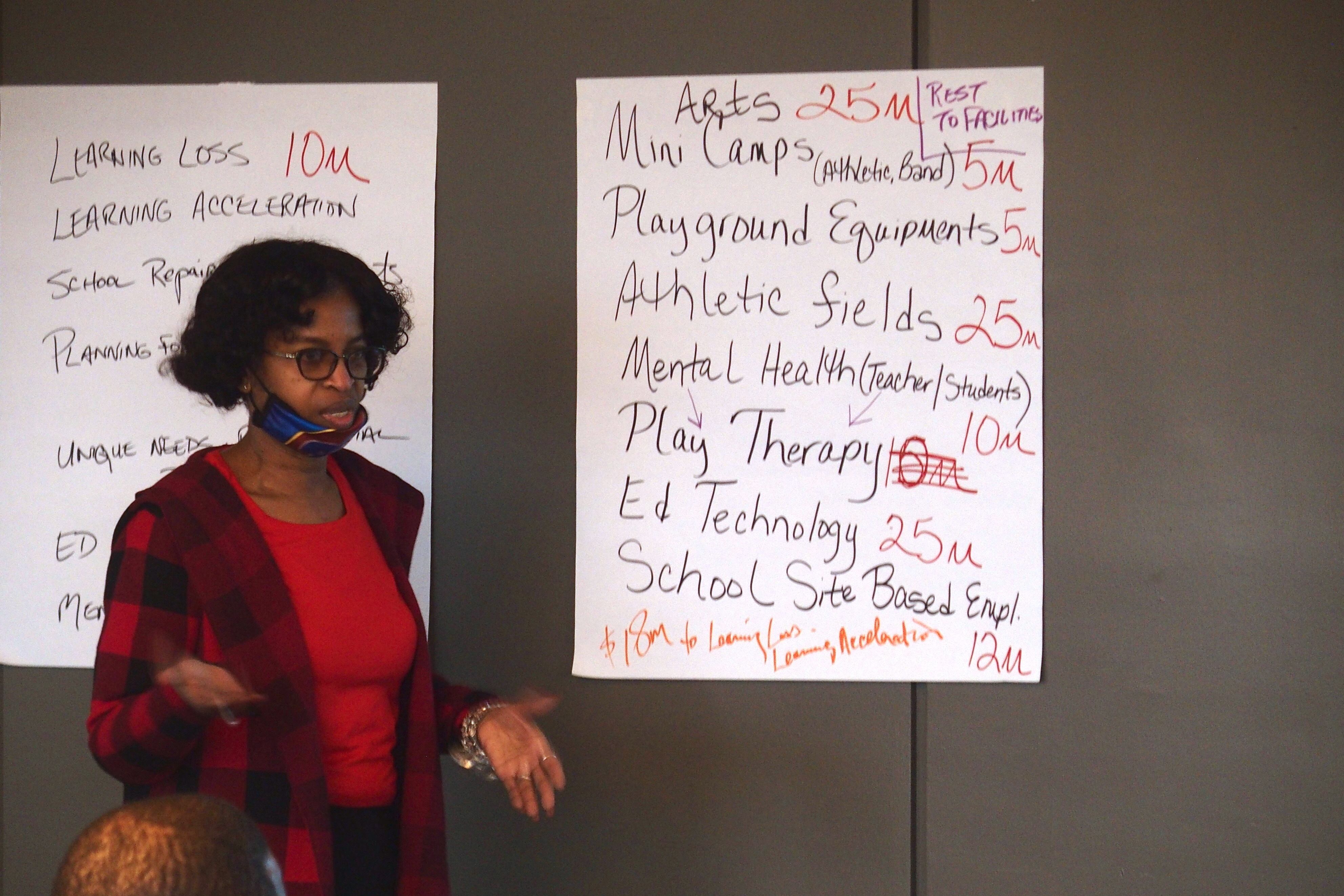Shelby County School officials unveiled a two-year $170 million plan to board members, offering a first look at how Tennessee’s largest district wants to spend its second round of federal relief money after a year of pandemic disruption to students.
At the board’s planning meeting Saturday, district officials suggested expanding its mental health services, hiring additional teacher assistants for young readers, and improving building ventilation.
Toni Williams, the district’s finance chief, said she wanted to bring some ideas to school board members before finishing the district’s application for the federal relief money. So, the proposal will change.

“God has been great. We have a whole pot of money we can look at,” she said. The district spent most of the first round of federal relief money approved last spring on laptops, internet hotspots, and protective equipment for students and teachers. Tennessee Education Commissioner Penny Schwinn said the state could also receive $2.6 billion if Congress approves a third round of relief money.
For the second round of federal funds, most of the board’s ideas were similar to district officials’ suggestions. But members wanted more money spent on building maintenance, athletic fields, and a $1,000 bonus for all school staff this year.
Board members were eager to go beyond what the district proposed for expanding mental health services. It would create two new mental health centers that would be open for student and family therapy through 7 p.m., with five employees each. The district’s existing mental health center employs licensed psychologists and social workers for student therapy and can be deployed to schools when there is a crisis.
“We’re going to have students coming back… most of them who have experienced trauma dealing with death, after death, after death,” said board member Stephanie Love. “And nevermind what they’re going through at home and the community.”
The proposal to add 250 teacher assistants in kindergarten and first grade classrooms is a carryover from the district’s ask to county commissioners, the local funding source for schools, in an effort to boost reading skills and reduce the number of students each employee supports.
Superintendent Joris Ray said he hopes county commissioners will help pay for those teacher assistants once the federal money runs out. Until then, district officials will have to inform the newly hired teacher assistants that they may only be employed two years.
“The work can’t wait,” he said.
The building improvements include replacing four schools’ heating, ventilation, and air conditioning (HVAC) systems and installing ventilation technology known as needlepoint bipolar ionization in all schools. Manufacturers claim the technology can stop novel coronavirus particles from re-entering air that circulates in a room. National engineering experts have called for more independent research on the technology before recommending it for use in schools.
The district’s presentation did not list a cost because officials are still seeking estimates, but Ray told Gov. Bill Lee last fall he expected it to cost about $26 million.
The district will receive $224 million in federal relief money, but some funding went to charter schools and summer camps. Below are the rest of the district’s proposals:
- Expand teacher training for using laptops and other technology in the classroom to prepare for when all students return to buildings.
- Hire more virtual teachers with special certification when the district has trouble filling vacancies.
- Launch ACT test preparation for high school students in the summer and recruit college students to tutor during the school year.
- Hire 36 specialists to help students in the lowest performing schools catch up in literacy and math.
- Create a summer camp for English language learners.
- Hire and train more staff for “reset rooms” where students can go to receive some behavior intervention instead of in-school suspension.
- Buy a screening tool to help staff understand students’ emotional needs; train staff to spot signs of trauma.
- Sanitize sports equipment, including helmets, to meet national standards during the pandemic.








